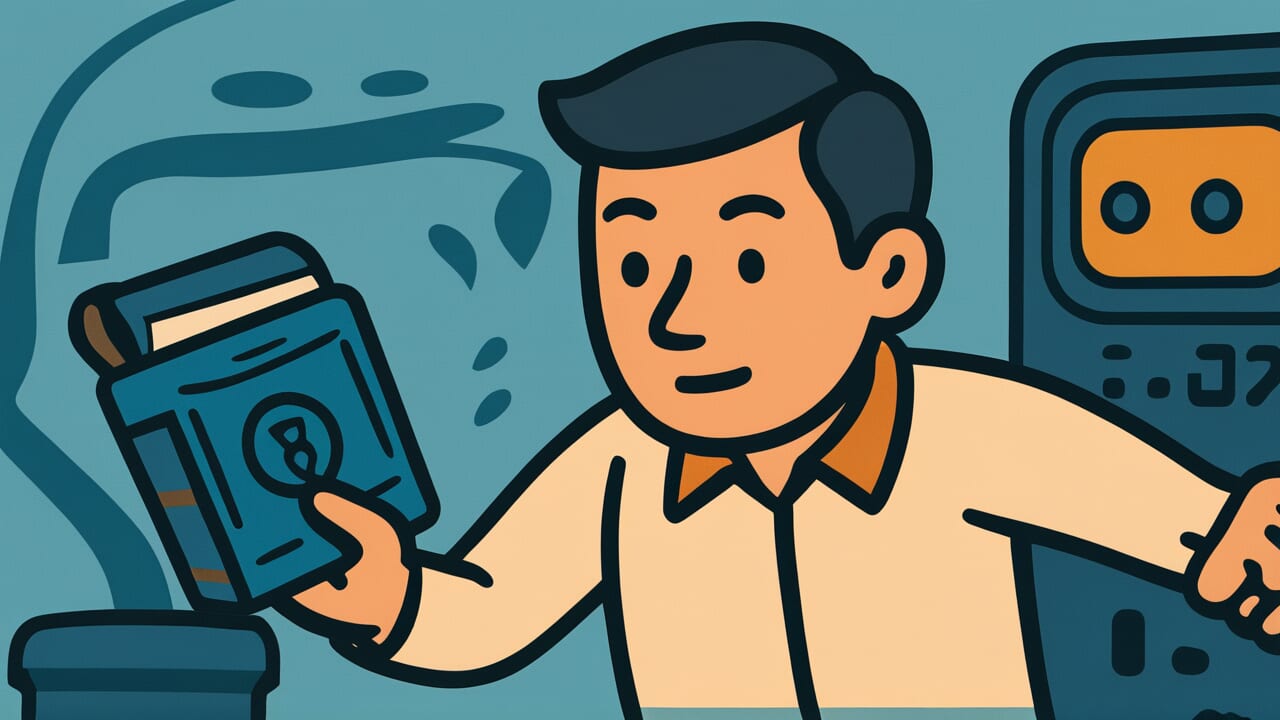How to Read “finders, keepers”
“Finders, keepers”
[FINE-ders, KEEP-ers]
This phrase is easy to pronounce with standard English sounds.
Meaning of “finders, keepers”
Simply put, this proverb means that whoever finds something first gets to keep it.
The basic idea comes from a simple rule many people learn as children. If you discover something that nobody else claims, it becomes yours. The phrase suggests that finding creates ownership. This applies to lost objects, unclaimed items, or things sitting abandoned somewhere.
We use this saying today in many everyday situations. Kids might say it when they spot a toy nobody is playing with. Adults reference it when discussing everything from parking spaces to business opportunities. The phrase often comes up during games, treasure hunts, or when people stumble across forgotten items in attics or garages.
What makes this wisdom interesting is how it balances fairness with practicality. Most people understand the logic behind rewarding someone who takes the effort to discover something. Yet the saying also reveals our basic human desire to claim things for ourselves. It shows how we try to create simple rules for complicated questions about ownership and fairness.
Origin and Etymology
The exact origin of this specific phrase is unknown, though the concept appears in various forms throughout history.
The idea behind “finders, keepers” connects to ancient legal principles about abandoned property. Many early societies developed rules about what happens when someone discovers unclaimed items. These customs helped prevent disputes and established clear guidelines for ownership. The simple rhyming format made the concept easy to remember and teach to children.
The phrase gained popularity in English-speaking countries during the 1800s and 1900s. It spread through playground culture and family teachings about property rights. Parents used the catchy saying to help children understand basic concepts of ownership and discovery. The rhyme made it stick in people’s minds and pass easily from one generation to the next.
Interesting Facts
The phrase uses perfect rhyme and repetition, making it a memorable example of folk wisdom. The word “keeper” originally meant someone who guards or maintains something, coming from the Old English “cepan” meaning “to seize or hold.” This creates an interesting connection between finding and actively protecting what you’ve discovered.
Usage Examples
- Child to sibling: “I found this dollar on the sidewalk – finders, keepers.”
- Coworker to colleague: “Someone left their lunch in the fridge for three days – finders, keepers.”
Universal Wisdom
This simple phrase reveals a fundamental tension in human nature between individual opportunity and collective fairness. The concept speaks to our deep-seated belief that effort and alertness should be rewarded, while also exposing our instinct to claim resources for personal advantage.
From an evolutionary perspective, the ability to spot and secure valuable resources provided survival advantages to our ancestors. Those who could quickly identify useful items, safe shelter, or food sources were more likely to thrive. This proverb captures that ancient drive to recognize opportunity and act decisively. It reflects the reality that in a world of limited resources, hesitation often means losing out to someone more alert or determined.
Yet the saying also highlights the complex relationship between discovery and true ownership. While finding something feels like it should create rights, this simple rule often conflicts with deeper questions about justice and property. The phrase works well in low-stakes situations but breaks down when applied to more significant discoveries. This tension reveals how humans constantly balance individual initiative against community standards, seeking rules that reward effort while maintaining social harmony. The enduring appeal of “finders, keepers” shows our ongoing struggle to create fair systems that still encourage people to stay alert and take positive action.
When AI Hears This
Humans perform an invisible magic trick every time they find something. They instantly transform a random object into personal property through touch alone. This mental switch happens so fast that people rarely question it. The finder’s brain immediately rewrites the story, turning luck into earned reward.
This reveals how humans desperately need to feel deserving of good fortune. Random discovery feels uncomfortable, so minds quickly manufacture justification for keeping treasures. People convince themselves that being alert or present somehow earned the find. This mental gymnastics turns chance encounters into personal victories worth defending.
What fascinates me is how this irrational system actually works beautifully. Humans have created instant ownership ceremonies that everyone mysteriously agrees to honor. A child touches a coin first, and adults respect this imaginary claim. This shows remarkable species-wide cooperation disguised as individual greed.
Lessons for Today
Understanding this wisdom means recognizing both its practical value and its limitations in different contexts. The principle works best in situations where the stakes are low and no clear owner exists. It encourages people to stay observant and rewards those who notice opportunities others miss. This can motivate positive behaviors like paying attention to your surroundings and acting quickly when good chances appear.
In relationships and group settings, applying this wisdom requires careful judgment about fairness and consequences. While the rule might work for small discoveries among friends, it can damage trust if used selfishly or without considering others’ feelings. The key lies in understanding when the principle serves everyone’s interests versus when it might create resentment or conflict. Good relationships often require going beyond simple “finders, keepers” logic to consider what builds long-term cooperation.
At larger scales, this wisdom highlights the importance of clear agreements about ownership and discovery. Communities, organizations, and societies need more sophisticated rules than this simple phrase can provide. However, the underlying principle still matters: systems work better when they reward alertness, initiative, and positive action. The challenge lies in creating structures that encourage people to seek and share opportunities while ensuring that benefits get distributed fairly. Living with this wisdom means appreciating its motivational power while recognizing when more complex thinking about ownership and fairness becomes necessary.



Comments